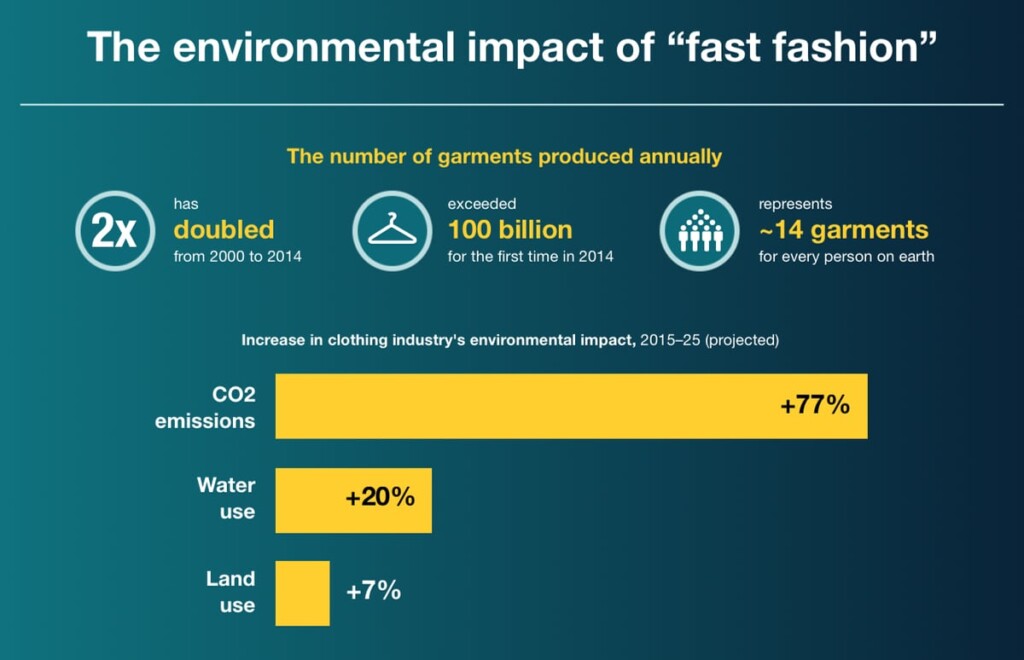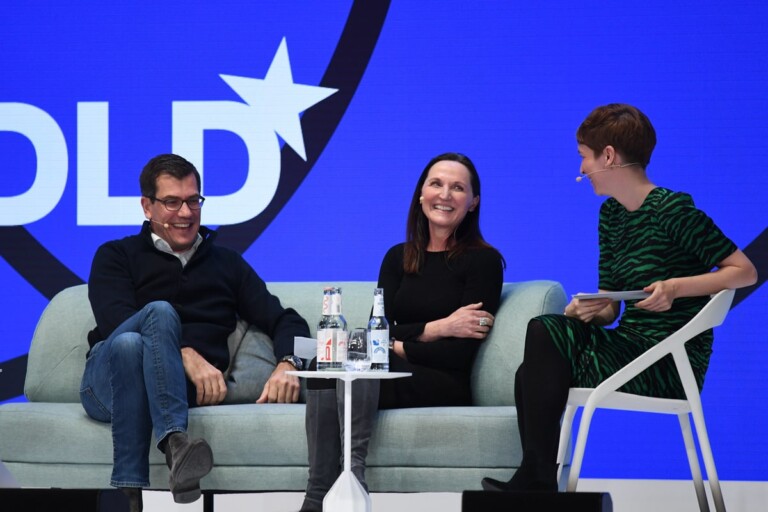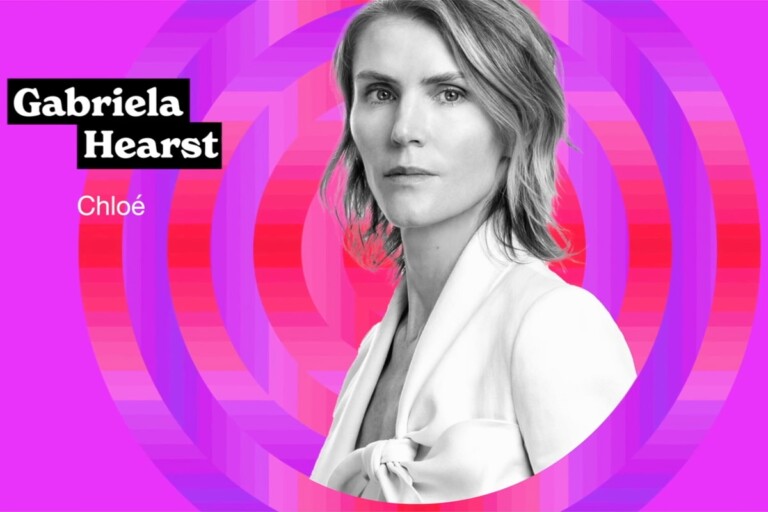
Fashion Star About You: Making Online Shopping “Fun and Inspirational”
Combining social media and e-commerce has made Germany’s fashion retailer AboutYou one of the fastest-growing startups in Europe. Co-Founder Tarek Müller explains the secret of his company’s success.
Founded in 2014, German fashion online retailer About You has become one of the biggest success stories in e-commerce, quickly growing to almost half a billion euros in sales. Ahead of DLD20, Co-Founder and Managing Director Tarek Müller (pictured above) gave us some insights into his company’s social media and mobile-first strategy, as well as About You’s borderless ambitions to conquer the world of fashion and online retail.
Why do many European startups find it so difficult to become global champions?
There are many reasons but let me point out two: First of all, European startups often don’t have the mentality to go global and compete with tech giants at full scale. It basically comes down to a lack of ambition. And secondly, for a long time, European startups tended to have founders with business backgrounds – in contrast to founders with a tech or data background, which has been the typical Silicon Valley model for decades. But statistics show that founders with a tech background tend to be more successful.
What do you see as the most important ingredient of success?
We believe what really counts is having a tech DNA, focusing 100 percent on customer needs and taking a global approach. About You raised more than $300 million in one financing round in 2018. We spoke to investors from all over the world, and what they are really looking for are ambitious companies, no matter where they are located. Many said that they would like to invest more in European companies. But they see a lack of potential candidates – companies that have the chance to become global winners.

With its recent launch in Romania, About You celebrated its expansion into the tenth country, barely six years after the company’s start. (Photo: About You.)
What are your ambitions with About You?
We want to make online shopping for fashion fun and inspirational. To this day, people tend to take a stroll on the high street when they’re not quite sure what they’re looking for. So they walk around and do window shopping until they discover something they like. With AbouYou we want to digitize this experience because it’s not been done yet, and it’s actually the largest chunk of the textile market. So we want to change the behavior of customers when they’re looking for inspiration or if they have an unspecific demand in buying clothes. And we want to do this on a global level.
You launched in 2014 and are already one of Europe’s largest fashion e-tailers. How did you grow so quickly?
I think it comes down to three factors. First, we have the best smartphone app for buying fashion, and the smartphone is the top device for digital natives when they shop online. We concentrated on mobile right from the start, even though the smartphone was not a common shopping device in 2014. Now more than 80 percent of the purchases made on About You are done via smartphones.
Secondly, we provide a lot of inspiration. In a way, we’re like a fashion magazine: We help you discover new outfits and styles, collections and brands. And the third important factor is personalization. Whenever you visit About You we try to understand you better and better, with every click, and we try to make your whole experience unique – just like our company name implies: It’s about you.

Social media, convenience and sustainability are among the most important factors for consumers when it comes to buying clothes, McKinsey reports in its State of Fashion 2020 survey.
What role does social media play in your business?
In e-commerce, it’s crucial to do proper marketing and customer acquisition at scale. Given that platforms like Facebook, Pinterest or YouTube are the number one channel for young people to spend time on, social media plays a very big role in our marketing mix. Only running a TV strategy wouldn’t be successful anymore. You need to dominate social media in order to get into the heads of young people and make them aware of your brand. In fact, we’re the first European that became a household name through a strategy focused on social media.
What have you learned from interacting with your customers on social media?
We gained many new insights, especially when it comes to working with influencers – which is one of our most important channels to address a younger audience. You can do a lot of things wrong and a lot of things right in that respect. The most common mistake is that companies try to dictate their own marketing strategy and the way they would like their brand to be communicated. That comes across as unauthentic. Followers will pick up on that very quickly, and then it’s basically useless marketing. What we learned is: We need to give a basic briefing to the influencer but then let them communicate the message in their own way.

Tarek Müller
Co-Founder, About You
“We want to push the circular economy by starting to sell second-hand products.”
You started as part of the Otto Group. How are you benefitting from this alliance with a more traditional mail-order retailer?
The Otto Group was our founding investor and we were a subsidiary until 2018. Now they are one of three large investors and remain the largest shareholder. Without the Otto Group, About You wouldn’t exist. We couldn’t have been successful without such a strategic partnership. In addition to the capital investment, the infrastructure support was key, for example when it comes to logistics, warehousing and providing a starting assortment of products.
Obviously there has also been a lot of knowledge exchange between About You and other parts of the Otto Group, and this goes both ways. Take the About You Cloud, for example, which is our technological infrastructure that we completely developed in-house. Now we’re offering it as a licensed product to other retailers, and this software suite is also used by almost all other companies within the Otto Group, as well as external clients such as Depot.

“Without improvements in how clothing is made, cared for, and disposed of, apparel’s environmental impact will worsen”, McKinsey warns in its report “Mapping the benefits of a circular economy”.
What is About You adding that helps to address a big issue for society?
Sustainability in e-commerce and the fashion industry is a very serious topic and we want to be part of the solution, not a part of the problem. We take a lot of measures in this field. To mention just three: We try to optimize our whole value chain towards more sustainability and fewer emissions, and we also recently changed our packaging to material that can be fully recycled.
Secondly, we want to push the circular economy by starting to sell second-hand products. In the long-term we also plan to make it easier for our customers to return old clothes they’re not interested in anymore, to basically complete the circle.
The third aspect is promoting products that have been sustainably produced. So if customers are looking for new items we want to push products that they can wear with a clean conscience, and we’ll be doing that by giving these products a much higher visibility.

Leading Change
By loading the video you agree to the privacy policy of YouTube.
You are currently viewing a placeholder content from YouTube. To access the actual content, click the button below. Please note that doing so will share data with third-party providers.
More Information
